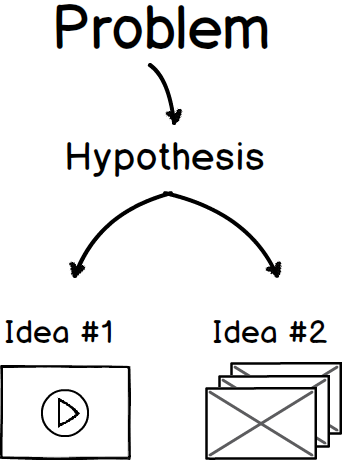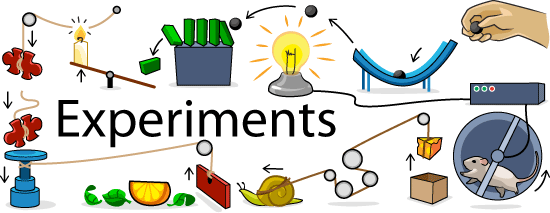1. MODULE 1: NATURE AND INQUIRY OF RESEARCH
AT THE OF THIS MODULE, YOU CAN:
1. Describe the characteristics, strengths, weaknesses, and kinds of quantitative research.
2. Illustrate the importance of quantitative research across fields.
3. Differentiate the kinds of variables and their uses.
RESEARCH DEFINED

Innovations and breakthrough that you come to know and enjoy are products of research . Etymologically, research comes from the middle French word researche, which means ''the act of searching closely.''
Additionally, the ''research'' is a combination of the prefix
re-, which means ''again,'' and the word ''search'', which means ''to look for.'' To summarize, research is the process of looking for information once again. Its main objective is to answer questions and acquire new information, whether to solve a problem or to shed light on confusing facts.

REFLECT UPON 1 :
What ideas of information are vague and questionable to you? How do you find answers to these questions?
--------------------------------------------------------------------------------------------------------------------------------------------------------------------------------------------------------------------------------------------------------------------------------------------------------------------------------------------------------------------------------------------------------------------------

More so, the results of this research process become more susceptible to skepticism even though the research generated answers to questions. For research to be more accurate and beneficial, science is embedded in its process.

 Research is a process of gathering data to prove a claim, test existing hypotheses, and find answers and solutions on pressing problems at hand. It generates knowledge that aims to describe, explain, and predict events.
Research is a process of gathering data to prove a claim, test existing hypotheses, and find answers and solutions on pressing problems at hand. It generates knowledge that aims to describe, explain, and predict events.SCIENTIFIC METHOD IN RESEARCH
The process of conducting research scientifically involves a systematic collection and investigation of data through the scientific method. It provides a set of clear and settled guidelines for collecting, assessing, and detailing data in the context of a research study.
Knowledge that came from research employs scientific method is characterized by the following elements:

1. EMPIRICAL APPROACH : Knowledge is gained through direct observation and experimentation. Only those data derived from scientific procedures are considered factual. Thereby, you ignore your preconceived notion about the construct understudy. You also disregard your feelings and opinions about it.
2. OBSERVATION : Your awareness of your environment constitutes your ideas. But if you rely on your awareness alone, it results in information bias, decreasing the validity of your findings. To increase the veracity of the information you gained from observation, you have to measure it carefully using an appropriate instrument. For example, if you want to find out how far A is from B, you do not rely on your estimate of distance that merely come from your vision. Instead, you should use measuring instrument to measure the distance between two cars to yield precise data.
In conducting research, scientific procedures must be applied to obtain reliable and accurate information.
3. QUESTION:
Knowledge comes from inquiries that are answerable. Questions must be answered through scientific investigation and must generate tangible proof. A question is unanswerable when it is deemed impossible for realistic exploration, no matter how intriguing it may be. The following is an example : ''What is the butterfly's level of well-being as it eats nectar from flower?''
Despite the fact that it can really result in a breakthrough, the preceding inquiry is unfeasible to be studied given the present state of science. Therefore, a question that yields knowledgeable information must have an obtainable answer based on the current scientific procedures available. Consider the following question: ''Is there an increase in test scores among students when they attended a tutorial class?'' the foregoing inquiry could definitely be investigated using available scientific methods because it is realistically measurable and concrete pieces of evidence are produced.
HYPOTHESES:
An educated guess, or hypothesis, is an attempt to explain a phenomena. Once formulated, it should help you formulate prediction. Therefore, it must be testable for analysis and interpretation. For example : ''There is significant increase of voters when registration is duly advertised.''

This hypothesis can be tried through experiment. Any result that comes from it guarantees scientific foundation.
EXPERIMENTS:
The given hypothesis should assure testability in a crafted condition for the accuracy and reliability of results.

The process of experimentation itself is a proof of scientific procedures. And so, the findings are considered truthful.
6. ANALYSES:
For findings to be reliable, the data gathered are subjected for analysis through statistical methods. The statistical treatment to be employed depends on the design of the study, type of data, and given questions.
You have to use statistics because it presents numerical evidence of the degree in which the results are considered valid and reliable. Also,, it minimizes the chance of having a faulty conclusion about the object of investigation.
7. CONCLUSION:
The process of making inferences involves concrete data to rule out opinions. Usually, a conclusion must be objective and supported by meticulous analysis of data. You should avoid adding more to what is literally available. For example, if the results of the study proved that the students' scores increased after exposure to tutorial classes, you should only concentrate on this given set of data in making your inferences.

It is not visible to relate other classes that the students attend that might help increase their scores. In doing so, the present data will be contaminated with your subjective analysis, thereby weakening the scientific procedures employed.
8. REPLICATION
This means doing the same study once again to a different set of participants to test the soundness of the obtained result. The importance and prevalence of replication research varies greatly on the discipline and research area. Conducting the study for the several times will pave the way for additional and essential purposes:

a. Establishing of reliability of findings : This previous data that were proven will have a stronger belief factor.
b. Discovery of new knowledge : Most often, replication generates additional information or brand new data that will improve your knowledge acquisition and enlighten your confusion, if any.
c. Ascertainment of the generalizability of results: This means that the results of the study can be applied to other groups of participants and, therefore, don not only limit to the original samples.
GOALS OF RESEARCH
When you follow the scientific method in conducting research, you offer an explanation or clarification to the phenomena in question with greater reliability and validity. Every field of study relies so much on this process to introduce advancement, novelty, and progress. Research, therefore, serves as the pillar of global transformation. The following comprises the goals of research: 


No comments:
Post a Comment